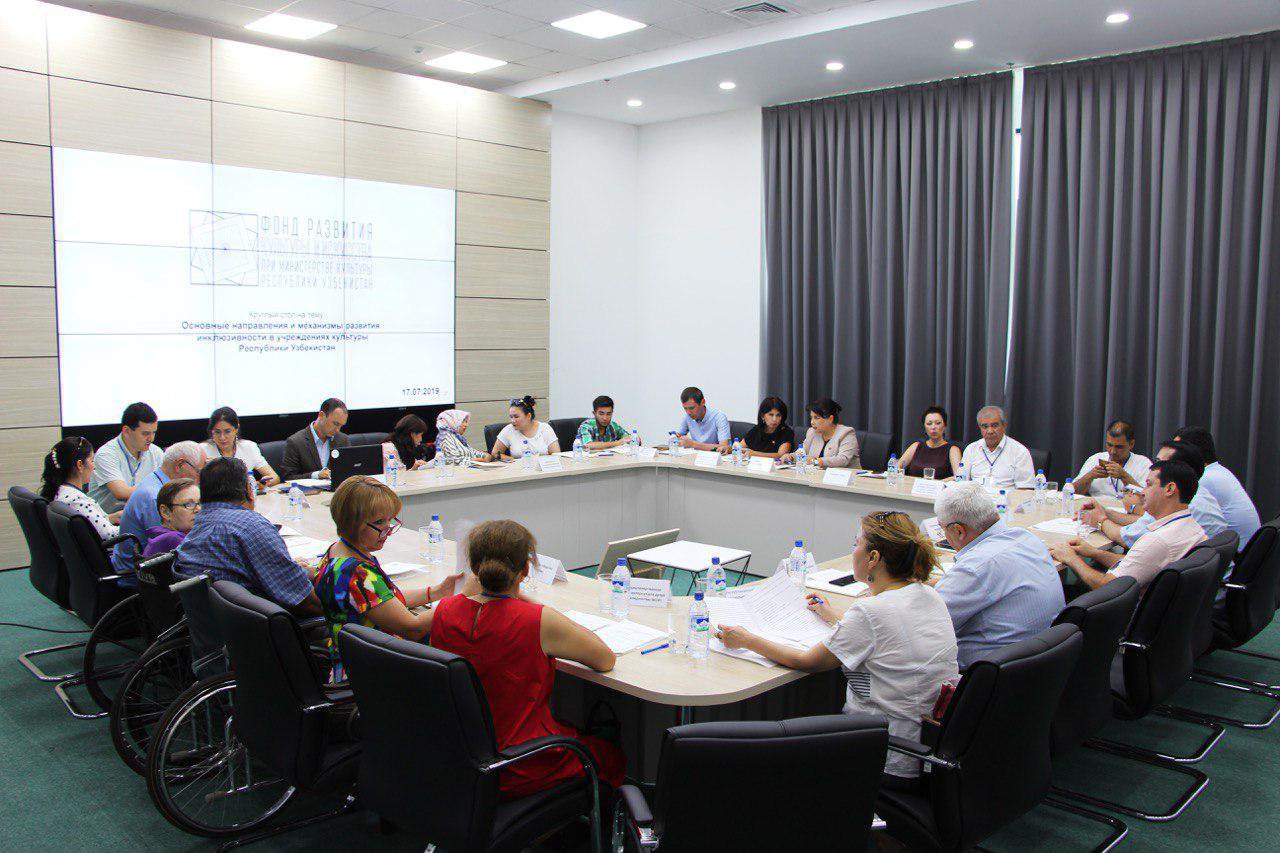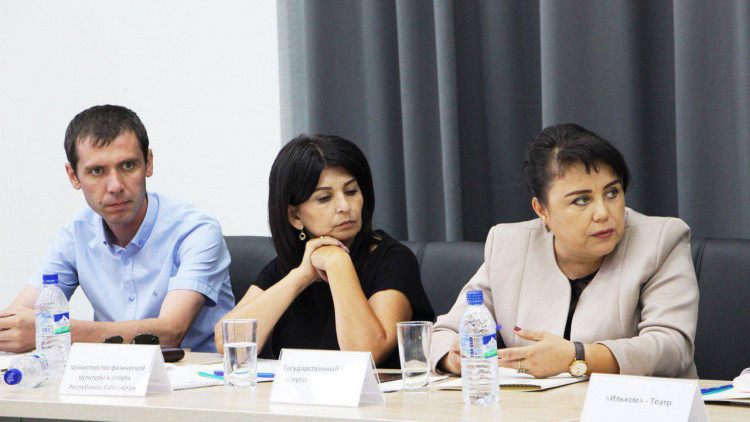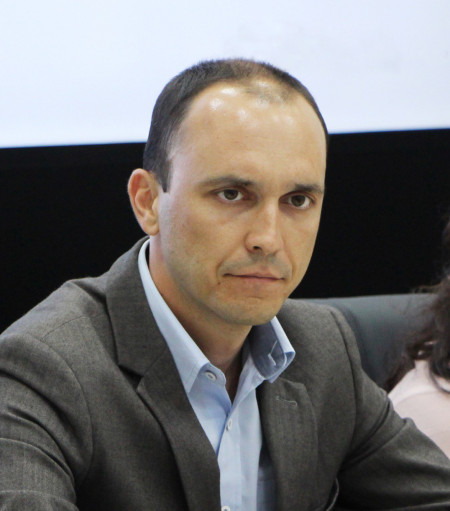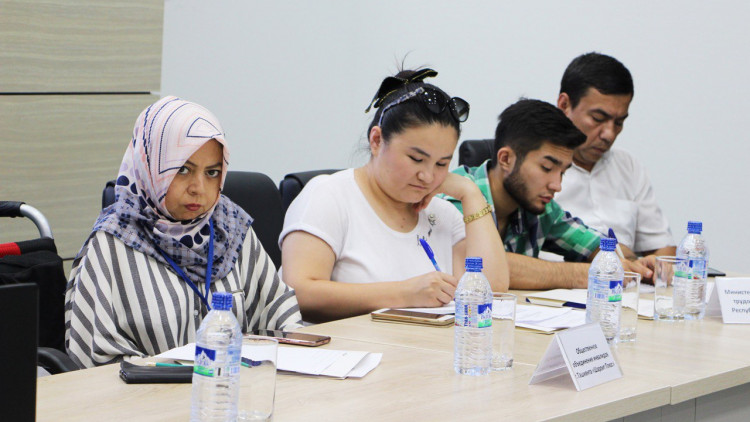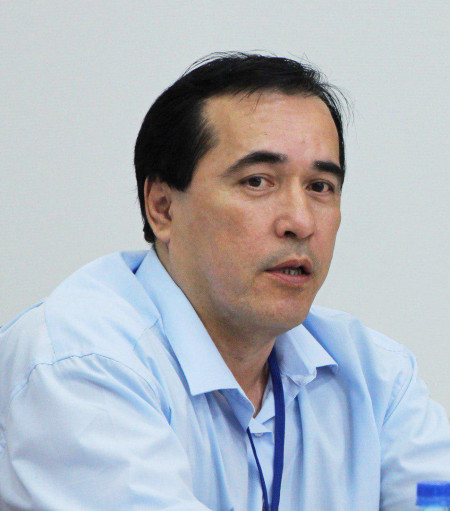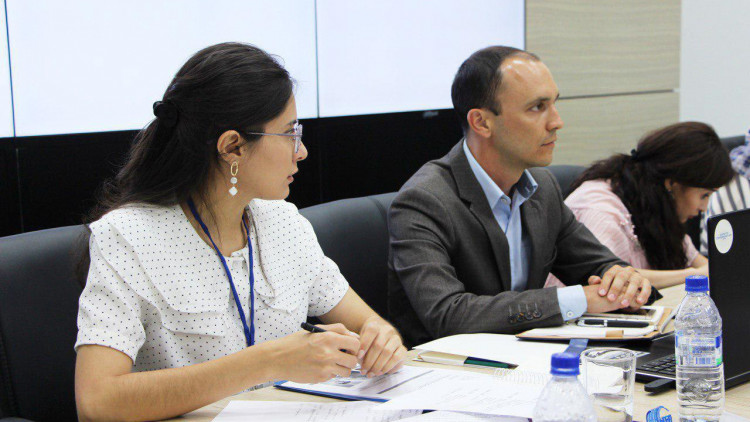Yesterday, at the initiative of the Art and Culture Development Foundation under the Ministry of Culture of the Republic of Uzbekistan, a round table was held on the topic: “The main directions and mechanisms for the development of inclusion in cultural institutions in the Republic of Uzbekistan”. The discussion was attended by representatives of ministries and agencies of the Republic of Uzbekistan, as well as NGOs and communities in the inclusive direction.
The round table is held in the form of a conversation between representatives of the Art and Culture Development Foundation under the Ministry of Culture, interested ministries and agencies, the leadership of specialized boarding schools, leaders of public organizations, communities working with people with disabilities, representatives of the World Health Organization (WHO), United Nations (UNICEF) and others.
The meeting discussed issues such as:
- Examining the level of public awareness of inclusiveness in Uzbekistan;
- Organization of a dialogue between societies of people with disabilities and authorities and institutions of culture and art;
- Informational support of the society on disability issues in order to eliminate any discrimination of children and adults with disabilities on the way to comprehending cultural values;
- Identification and creation of tools to support the implementation of best international practices in the field of inclusive accessibility and other issues on the topic.
Representatives of the Foundation called on the audience to share their opinions, as well as to discuss vital problems in the field of accessibility of cultural objects for people with special needs. Within the framework of the round table, an exchange of views took place on topical issues regarding creating conditions for inclusiveness, and, first of all, on promoting interagency cooperation and developing a set of measures.
Many participants noted the need to hold such meetings, allowing to gather people of different structures that influence the establishment of infrastructure and common activities of cultural organizations in the cities of Uzbekistan in one place. The topic is undoubtedly acute. Participants emotionally shared their problems and observations, sincerely wanting to influence not only cultural institutions of the city to be accessible for people with disabilities, but also all institutions, roads, transport and related elements of the city to be open and accessible to all segments of the population.
Scientific research on this topic was also discussed. So, one of the speakers, Dilmurad Yusupov, a doctoral candidate at the Institute for Development Studies at the University of Sussex (United Kingdom), shared his analysis of the situation:
- Our legislative documents clearly include all the laws to create the necessary conditions for people with special needs. However, unfortunately, based on the research and analysis, we have to admit that the implementation of all decrees on this topic has been implemented in practice by only 30%. It would be desirable that at least the basic conditions necessary for the movement and livelihoods for people with disabilities were created. For example, it was pleasant to observe, when during a tour in Samarkand children from the boarding school for the hearing-impaired were also accompanied with the sign language interpreter. It would be desirable, if there were more of such innovations and the main thing that they were qualitative, taking into account all the nuances necessary for people with disabilities. It is good that such round tables are organized where a dialogue can be arranged.
Ulugbek Mamatkhanov, a representative of the Uzbek Society of the Blind, also shared his observations on creating an enabling environment for people with special needs:
- I was lucky to be in different cities of the world and I would like to note that you can learn a lot from some cities. For example, in the city of Lviv almost at every traffic light there is also an accompanying sound traffic light. In many cities, in places of sights, museums and cinema - there are well-established typhome comments, special railings, specially-equipped tracks and much more. The museums have a description of the exhibits in Braille. Of course, all this is worth the effort and great finances. However, I think in the light of the development of our country, we should also introduce such amenities for people with special needs in the cultural institutions of the city and country.
Also the representatives of the association of persons with disabilities spoke.
Isakov Oybek, Chairman of the Association of Persons with Disabilities of Uzbekistan:
- First of all, I would like to thank the Foundation for organizing this event. A lot has been said here about creating conditions for people with special needs. But, I would also like to touch on the topic of how such a person is sometimes created by a very disrespectful image in films, performances, television programs and in the media.
Often we are exposed in a humiliating light, such as in the form of beggars, weak people. I would like a general inclusiveness strategy to be developed. This requires close work with representatives of the media, producers, screenwriters and other representatives of the cultural and media professions.
It is also worth noting that the round table was held as part of the first Inclusive Half Marathon, which will be held in November of this year. Mirkhan Sagitov, Project Manager for the Half Marathon of the Art and Culture Development Foundation under the Ministry of Culture of the Republic of Uzbekistan, told the participants about it:
- From November 1 to November 3, a half marathon will be held in the city of Samarkand, which will also include an educational component. Now we are at the stage of thorough development of all points on the organization of this race. It should be noted that the half marathon will pursue the main goal: to draw public attention to issues of inclusion in cultural organizations, as well as for the development of tourism in Uzbekistan.
For people with different forms of disability, a special track will be created and we will try to create all the necessary conditions for comfortable participation of people with special needs. I hope that this is exactly what the representatives of societies and agencies that have gathered here today will help us with.
To raise awareness of the socially vulnerable groups of the population, the round table also addressed the issues of development of inclusion, physical accessibility, and accessibility of education, sports, art and culture in our country. According to the results of the round table, recommendations and suggestions will be developed. At the end of the event, all participants exchanged contacts and expressed their willingness to cooperate with each other.



